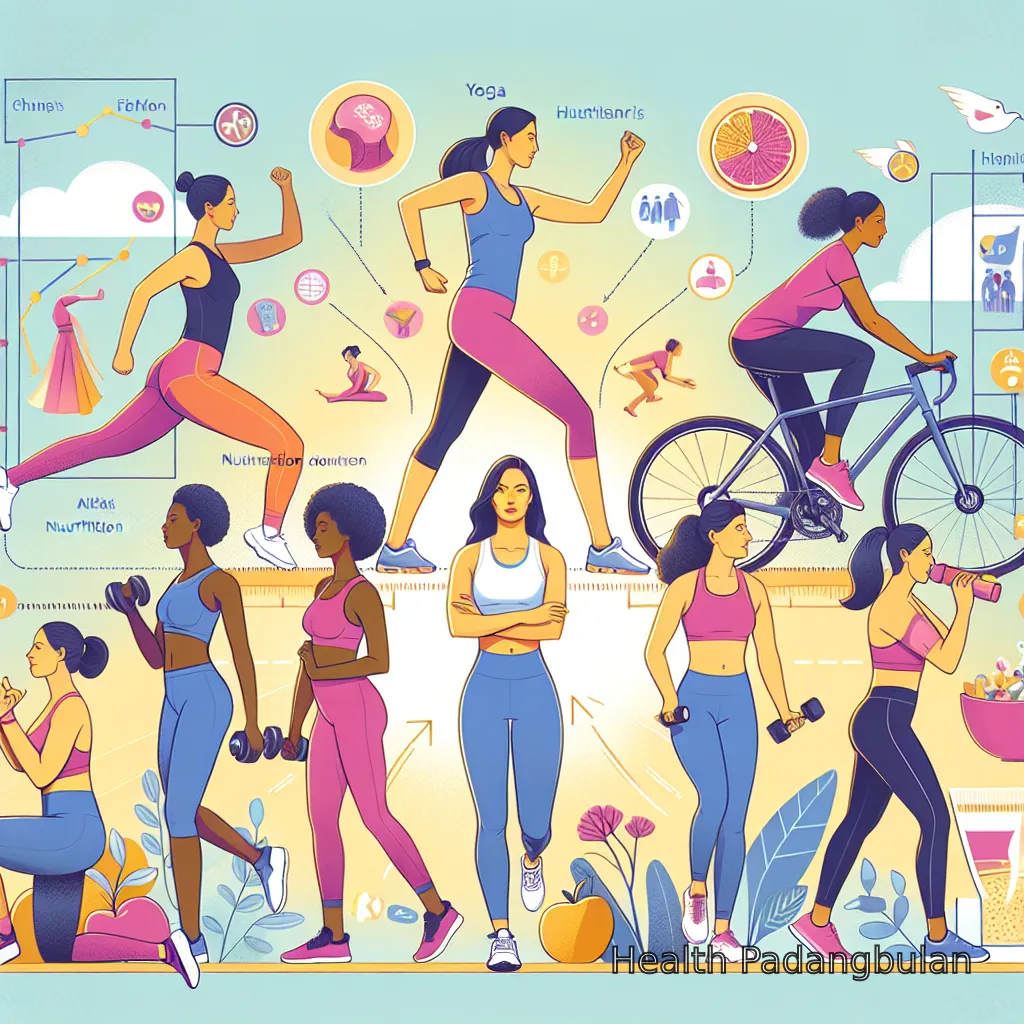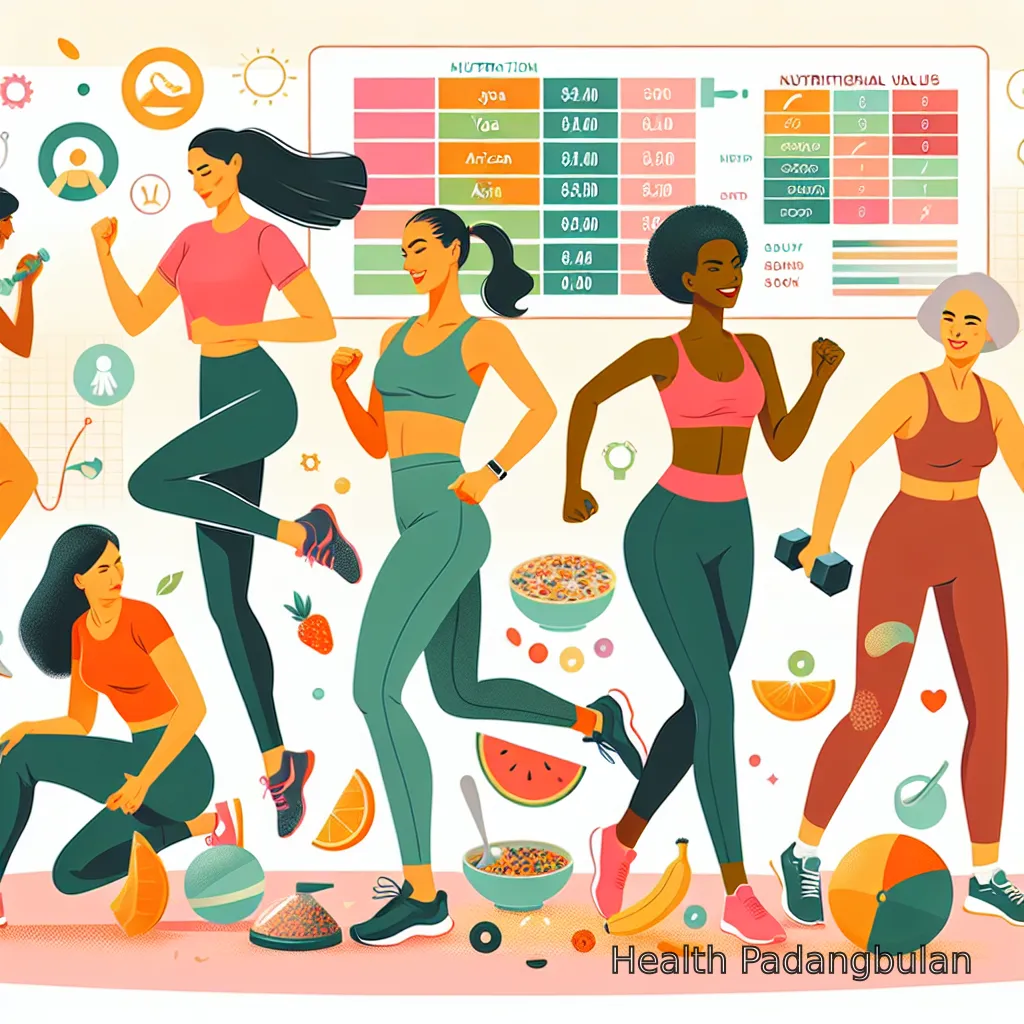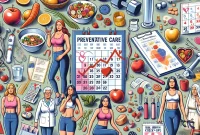Hello, health warriors! Ever feel like your body is a beautifully complex machine with its own unique operating manual? Well, you’re not wrong! While general health advice is often helpful, women’s bodies have distinct needs that evolve throughout life. From navigating hormonal shifts to building strong bones and maintaining vibrant energy, the right approach to `nutrition and fitness for women` isn’t just about looking good; it’s about feeling amazing, inside and out.
In this guide, we’re diving deep into how you can optimize your diet and exercise routines to support your unique physiology, ensuring you thrive at every stage of life. Think of this as your personalized roadmap to a healthier, happier you.
Why Nutrition and Fitness Are Non-Negotiables for Women

Let’s be real: women face a unique set of physiological demands. Our bodies are incredible, capable of everything from menstruation and pregnancy to navigating the powerful shifts of menopause. These life stages directly impact our nutritional requirements and fitness needs. For instance, menstrual cycles can deplete iron stores, while pregnancy demands increased folate and calcium. As we age, declining estrogen levels can accelerate bone loss, making `bone density women` a critical concern.
Without a focused approach to `nutrition and fitness for women`, we might find ourselves struggling with low energy, mood swings, increased risk of chronic diseases, and even challenges with `weight management for women`. But here’s the good news: by understanding these unique demands and adapting our lifestyle, we can proactively support our health, boost our vitality, and truly flourish.
The Nutritional Blueprint: Fueling Your Female Form
Think of your diet as the foundation of your health. Just like a house needs a strong base, your body needs the right building blocks. For women, this isn’t just about eating ‘healthy’; it’s about eating smartly for your specific needs.
Read also : women’s workout plans
Move Your Body: Crafting Your Fitness Journey
Exercise isn’t just about burning calories; it’s about building resilience, boosting mood, and fortifying your body against the challenges of life. For `nutrition and fitness for women`, movement is the other half of the equation.
Life’s Stages: Adapting Your Wellness Strategy

A woman’s body is a magnificent, ever-changing landscape. What worked in your 20s might not be ideal in your 40s or 60s, and that’s perfectly normal! For example, during perimenopause and menopause, hormonal fluctuations can affect metabolism, mood, and fat distribution, making `weight management for women` more challenging. Bone density also becomes a greater concern. Pregnancy, of course, brings its own specific nutritional demands for both mother and baby. Adjusting your `nutrition and fitness for women` to meet these evolving needs—perhaps more resistance training for bone health, or nutrient-dense foods to combat fatigue—is key to sustaining long-term well-being.
Read also : gut health for women
Weight Management: A Holistic Approach
When we talk about `weight management for women`, it’s not just about calories in vs. calories out. It’s a complex interplay of hormones, stress, sleep, genetics, and lifestyle. Instead of focusing on quick fixes, prioritize sustainable habits: balanced nutrition, regular exercise, adequate sleep, and stress reduction. These holistic elements work together to support a healthy weight range that’s right for your unique body, promoting overall health rather than just a number on the scale.
Beyond the Plate and Gym: Mind, Sleep, and Stress
True wellness extends beyond just food and exercise. Your mental and emotional health plays a huge role in your physical vitality. Chronic stress can wreak havoc on hormones, digestion, and sleep, making `nutrition and fitness for women` efforts feel like an uphill battle. Prioritize quality sleep – aiming for 7-9 hours per night – as it’s crucial for recovery, hormone regulation, and appetite control. Practice stress-reduction techniques like meditation, deep breathing, or spending time in nature. Remember, taking care of your mind is just as important as nurturing your body.
Conclusion
Embracing a lifestyle centered around optimal `nutrition and fitness for women` isn’t a race; it’s a marathon, a lifelong journey of discovery and self-care. Your body is constantly adapting, and by understanding its unique language, you can provide the specific nourishment and movement it needs to thrive. Be patient with yourself, celebrate small victories, and remember that consistency, not perfection, is the key. Here’s to a vibrant, strong, and empowered you!
References
- World Health Organization (WHO) on Women’s Health
- Mayo Clinic: Calcium and Vitamin D – Important for all ages
- Healthline: Iron Deficiency in Women
FAQ
How often should women exercise for optimal health?
For optimal health, women should aim for at least 150 minutes of moderate-intensity cardiovascular exercise or 75 minutes of vigorous-intensity exercise per week, combined with 2-3 strength training sessions targeting all major muscle groups. Flexibility and balance exercises are also beneficial.
What are the most important nutrients for women to focus on?
While all nutrients are important, women particularly benefit from focusing on iron (especially pre-menopause), calcium and Vitamin D for `bone density women`, folate (for reproductive health), and magnesium for overall bodily functions. A balanced diet typically provides these, but supplements may be necessary in some cases.
How does diet affect hormonal balance in women?
Diet plays a crucial role in hormonal balance. Healthy fats are essential for hormone production, fiber supports estrogen metabolism and `gut health for women`, and stable blood sugar from complex carbs prevents insulin spikes that can impact other hormones. Processed foods, excessive sugar, and inflammatory ingredients can disrupt this delicate balance.
Can `nutrition and fitness for women` help with menopause symptoms?
Absolutely! A balanced diet rich in phytoestrogens (e.g., flaxseeds, soy), calcium, and Vitamin D can help manage hot flashes and support `bone density women`. Regular exercise, especially strength training, can alleviate mood swings, improve sleep, maintain muscle mass, and aid `weight management for women` during menopause.
What’s the best approach for `weight management for women`?
The most effective approach for `weight management for women` is a holistic one. It combines a nutrient-dense, balanced diet (not restrictive), regular physical activity that includes both cardio and strength training, adequate sleep (7-9 hours), and effective stress management. Consistency and self-compassion are key.
Is `gut health for women` really that important?
Yes, `gut health for women` is incredibly important! A healthy gut microbiome influences everything from nutrient absorption and immune function to mood, skin health, and even hormonal balance. An imbalanced gut can contribute to inflammation, digestive issues, and overall systemic problems.
How can I stick to a `women’s workout plan` consistently?
Consistency is built on enjoyment and convenience. Find activities you genuinely love, schedule your workouts like important appointments, start small to build momentum, find a workout buddy, and focus on how exercise makes you feel rather than just how it makes you look. Having a diverse `women’s workout plan` can also prevent boredom.
